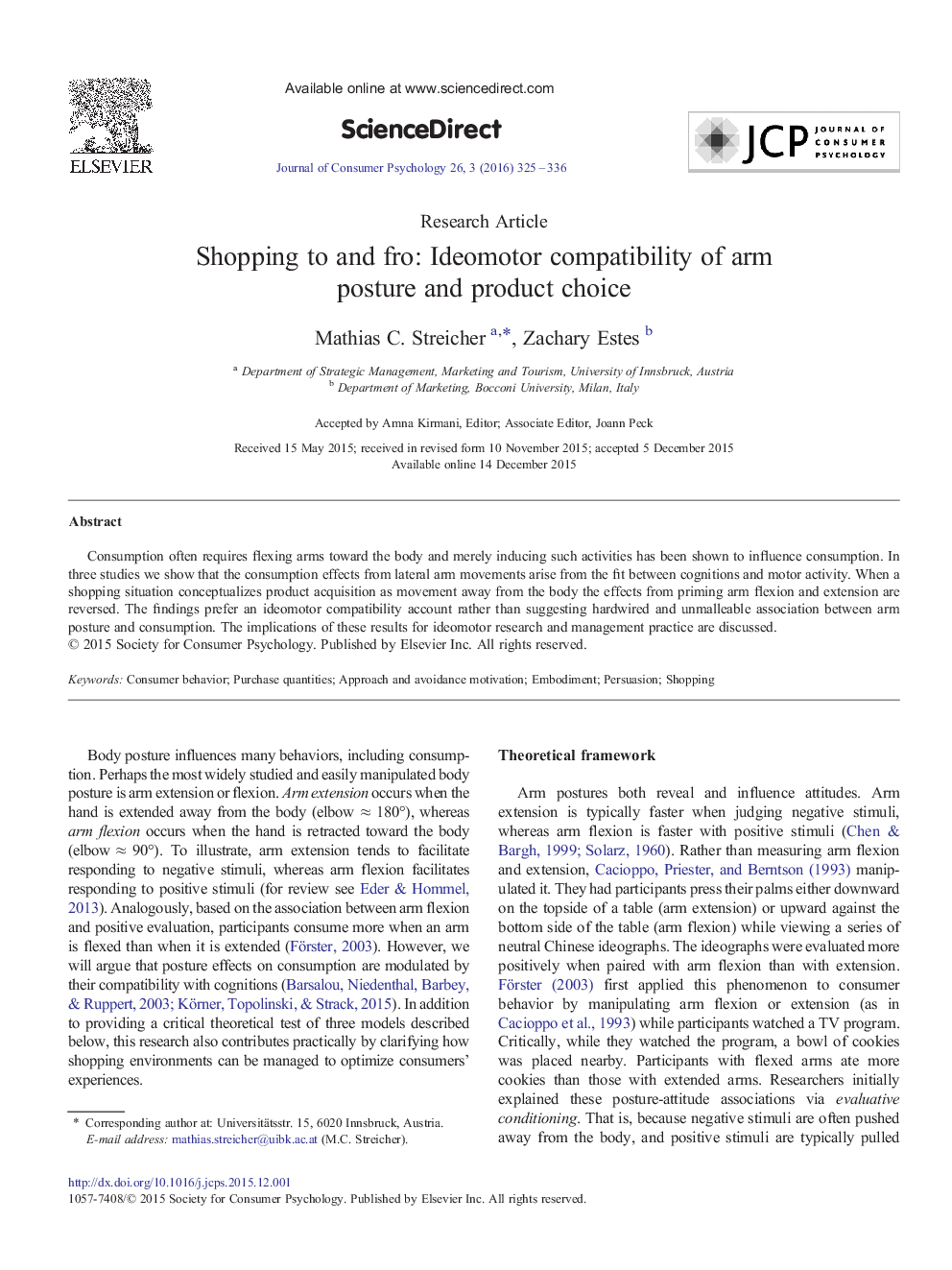| Article ID | Journal | Published Year | Pages | File Type |
|---|---|---|---|---|
| 881967 | Journal of Consumer Psychology | 2016 | 12 Pages |
Abstract
Consumption often requires flexing arms toward the body and merely inducing such activities has been shown to influence consumption. In three studies we show that the consumption effects from lateral arm movements arise from the fit between cognitions and motor activity. When a shopping situation conceptualizes product acquisition as movement away from the body the effects from priming arm flexion and extension are reversed. The findings prefer an ideomotor compatibility account rather than suggesting hardwired and unmalleable association between arm posture and consumption. The implications of these results for ideomotor research and management practice are discussed.
Related Topics
Social Sciences and Humanities
Business, Management and Accounting
Marketing
Authors
Mathias C. Streicher, Zachary Estes,
